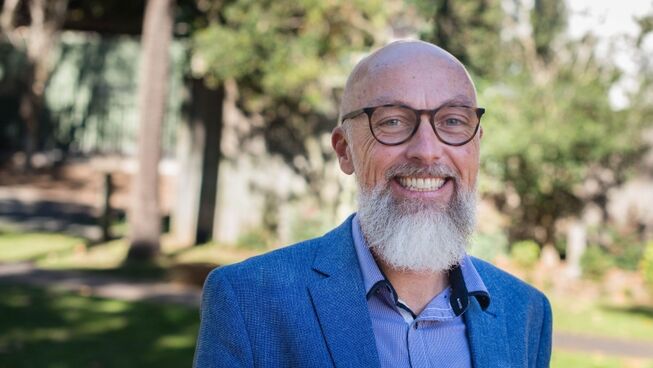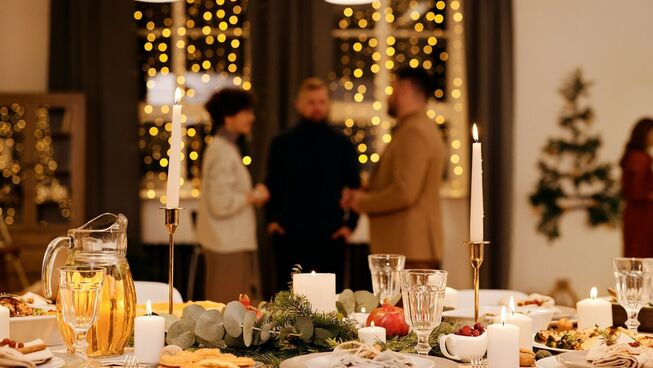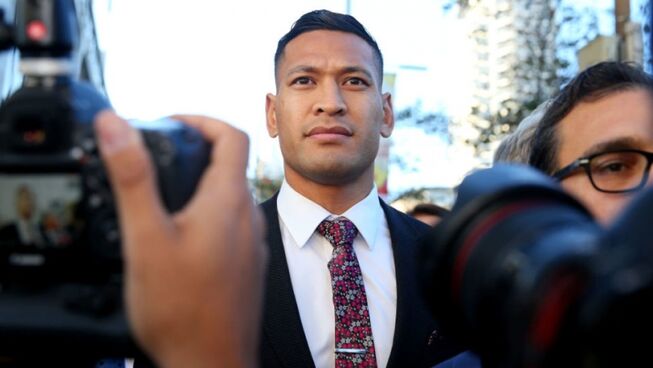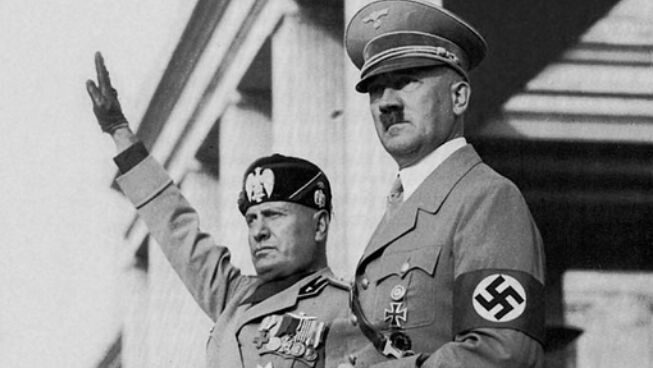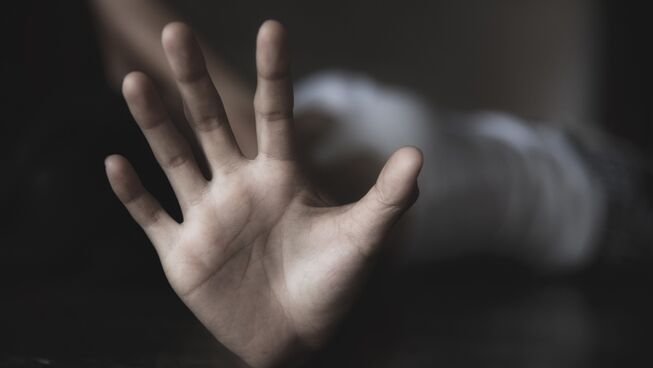Getting Roasted at Your Christmas Roast
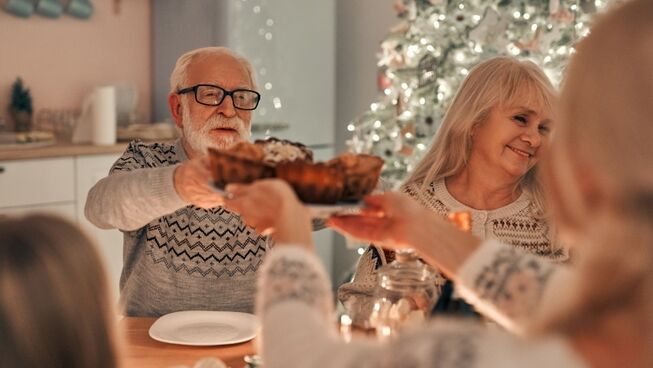
Christmas and the holiday season is a great time to get together with family and eat, laugh and fight.
Fight? Yep, that’s right. Holiday times around dining tables are fraught with danger when members of families get together for the first time in a long time and start talking. In fact in the USA, people often come away from Thanksgiving celebrations less thankful than when they turned up.
So much so, and so much more so in recent years, that newspaper and online articles abound leading up to Thanksgiving that give tips on how to survive a family meal at which those who vote the other way to you, or think about religion or sex differently to you, can survive, and indeed thrive.
You know how it goes. You’re passing the roast potatoes mid-conversation and someone casually asks one of the following:
Oh you mean you voted for…?
Do you mean to say that you don’t believe that…?
Why do you think it matters what people do when…?
And soon, if you are not careful, it can be on for young and old, and you’re all giving each other a different kind of roast.
Well, in Australia, without Thanksgiving, we’ve got Christmas, New Year, the Australia Day holiday, and a whole summer vacation to either get it right or get it wrong when it comes to conversations around the dining table or the barbecue.
Conversations that can easily escalate into rowdy arguments, especially if long held grudges or differences of opinion come to the fore.
Let me throw some words and phrases at you that are guaranteed fire starters for the summer holidays 2020: Climate change; impeachment, bushfires, gender identity, religious discrimination, Trump, Brexit, Trump, Brexit, Trump, Brexit, Brexit, Brexit, BREXIT…
Sorry, got carried away there for a moment. Don’t know what came over me.
See? We tend to get locked in to our viewpoints and come hell or high water we’re going to have our say.
So, is the only way to survive the dining table during the festive season to keep it light? How about that cricket eh? Phew, how hot is it today? Did you cook this yourself or did you get it from a packet? Well, maybe not the last one. And come to think of it, if I raise the subject of the weather, couldn’t that lead to an argument about fossil fuels and that new gas guzzler Aunty Pam just bought? Argh!
It’s pretty clear that we’re increasingly divided in our opinions across Australia, and increasingly hostile towards those who differ to us. Now that’s not true of everyone, and social media has a big part to play in this. New York Times columnist, David Brooks, talks about “the exhausted middle”; the majority of people who watch the warring factions fire shots at each other from the trenches.
But this stuff affects us. Remember that Coopers advertisement where two politicians had a friendly chat about differing on same sex marriage? Well, the hangover from that the next couple of weeks was legendary, and it embedded the belief that strong differences can’t be discussed in a way that keeps relationships intact.
There’s every chance you say the wrong thing about Donald Trump and Aunty Pam will be screeching out of the driveway in that gas guzzler, half-finished trifle bowl on the passenger seat, faster than you can say “Brexit 2.0”.
So how can we avoid it? Former British Labour Party employee and social researcher, Chris Clark, has compiled the factors that lead to the deep divisions in our community in areas of politics and sociology. Clark’s findings were quoted in The Times newspaper in the wake of the UK election on December 12, and they make for fascinating reading. The article quotes three myths that lead to conflict, and he labels them The Dark Knight, The Puppet Master, and the Golden Age.
Here’s The Times explaining The Dark Knight:
The Dark Knight is the underlying belief that the struggle for the future is between light and dark, that all virtue is on one side and all vice on another. So those who oppose you are not wrong, they are immoral. The day after the election, on camera, a young woman Labour supporter wished the prime minister “a horrible death” before disconcertingly revealing that she planned to work in the NHS. As to those ordinary working-class people who had voted for the Tories, what they had done was “disgusting”. The problem here, suggests Clarke, is that if this is what you believe, then a dialogue with others is next to impossible.”
All virtue on one side and all vice on the other. Or to put it in holiday family get-together language: All virtue on one side of the lunch table and all vice on the other. Once you paint it totally - and only - in black and white, the chance of any meaningful dialogue is out of the question. Those who disagree with you are not only wrong, they are bad.
Yet it’s dialogue with others who disagree with you that is a central thread of our societal fabric. Without the ability to live with - indeed live alongside, and even eat alongside - our deepest differences then our communal future looks bleak.
If we think that our dining tables can be complex places then spare a thought for those who invited Jesus to a meal in the Bible. In the first century world of Jesus’ time, who you shared a meal with said as much about you as what you said at the table. Yet Jesus was always turning the tables.
Time and time again respectable people who were part of polite society and who got asked to lots of fancy dinner tables, accused Jesus of eating meals with people who are too different, who believed or did bad things; who would never get their feet under the table. In other words, people who were all “vice”. And Jesus was happy to do so.
And of course, Christmas doesn’t simply tell us “be like Jesus and invite those to the table who don’t deserve it”, as if we are somehow more noble for doing so. Christmas tells us that we are ill-deserving of having a meal with Jesus, yet he invites us to eat with him. Jesus, who has all the virtues, invites us, who have all the vices, to the dinner table. Only when we recognise that we don’t deserve that, can we rid ourselves of the “Dark Knight” myth. Only when we recognise that Jesus took a horrible death for us that he didn't deserve, and then says “Come, sit down, and let me serve you,” will our hearts be soft enough to share a meal with those, even within our family, who we do not agree with, or perhaps even do not like.
What attitude will you bring to the table this festive season? Pride in your virtues, and an attitude of superiority? Or sorrow in your vices, and an attitude of humility? It will make all the difference to what happens around that table.
